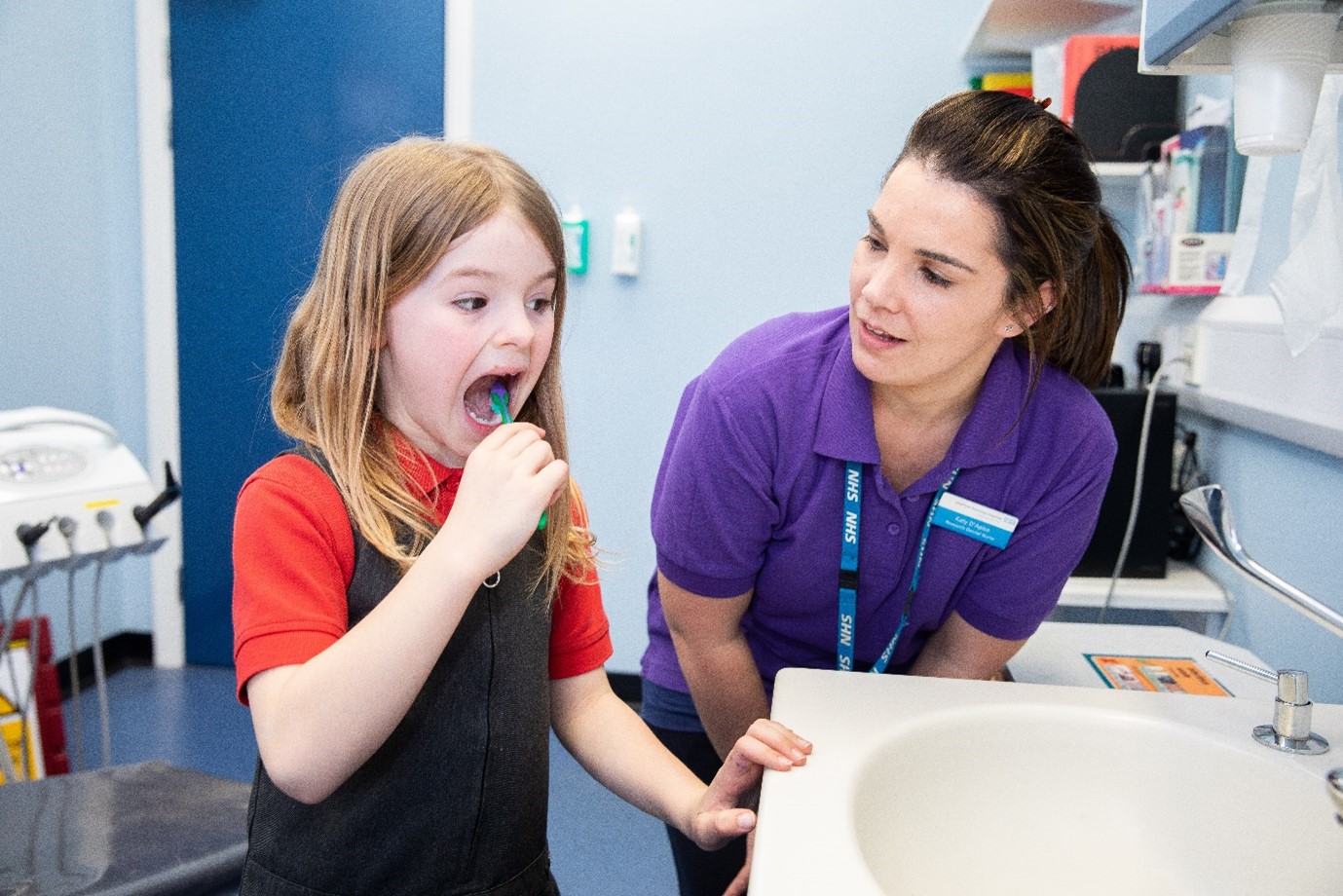Babies put their hands in their mouth and dribble in preparation to eat solid foods. However, this stage coincides with teething. During teething you may notice:
- more dribbling than usual
- red and sore gums where a tooth is coming through
- flushed cheek on one side
- rubbing one ear
- chewing on things more than usual
To give your baby some short-term relief you can give your baby something to chew on, like a teething ring. Avoid giving rusks as they are high in sugar. There is no evidence to support that babies get fever or diarrhoea due to teething. However, if your baby is in pain, they can be given sugar-free paracetamol (calpol) or sugar-free ibuprofen.
By around the age of three children will have all 20 of their baby teeth. When they reach six years old, these teeth will begin to fall out and are replaced by adult teeth.
